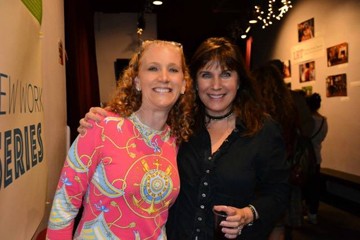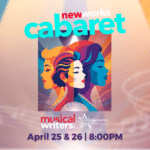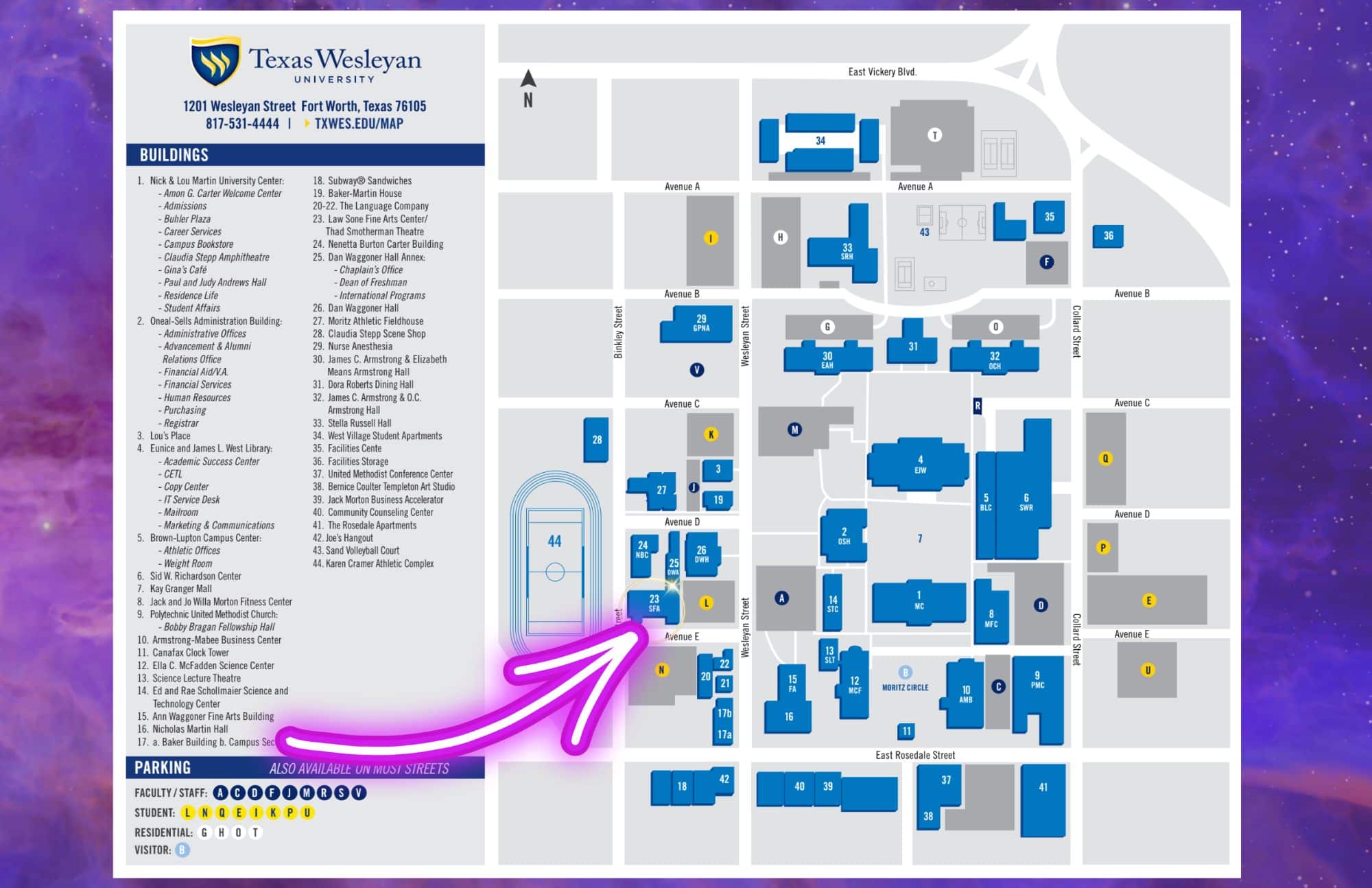“If you are unapologetically yourself in everything you do, you can’t go wrong. Write the way you talk, bring yourself to your work, and tell stories that are true to you. Authenticity is everything, and it’s the only surefire way to guarantee that what you’re writing will be unique.”
~Nina Osso
What do Pippin, In The Heights, and Edges have in common? They were written by college students!
The familiar versions of these shows are likely very different from the drafts that were presented when Stephen Schwartz, Lin-Manuel Miranda, and Pasek & Paul were in college. Still, it makes sense that these musicals received their first productions at their writers’ schools. Student theatre is exciting, innovative, and created by the people it’s for. It’s the perfect environment for new shows to start lives that extend far beyond the academic institutions where they’re conceived.
When I wrote and produced my first musical, A Love Story (With Supernatural Roadblocks), I was 16, and I remember feeling like I was flying by the seat of my pants. There isn’t much information out there for those of us who do this, especially at the high school / college level! Now, I’m about to start my senior year at Boston Conservatory at Berklee where I study musical theatre and have been very involved in student work. At this point, I’ve written four musicals and two of them have been produced. Additionally, 54Below is presenting “The Songs of Nina Osso” in just a few weeks (on August 20th)!
Now that I have some experience under my belt, I’d love to create the resource I was looking for when I was starting out. So without further ado, here are 11 pieces of advice that I have for student MT writers and producers!
1. Fall in love with the fact that you’ll become a better writer every day.
When I wrote A Love Story in high school, I would’ve sworn it was my magnum opus. As a 21-year old, I read it back and see something I’d revise on every page – and I view that as an exciting sign that I’m continuing to grow and find my voice with each day that passes. I wouldn’t write that show the same way today, but it was everything it needed to be in order to get me to where I am now!
Write all the time, and don’t be ashamed of first drafts that just aren’t clicking yet, and don’t stop writing something because you’re judging it before it’s been revised. Everything you cut is a necessary step towards the version of it that makes the final draft, and there’s no such thing as wasted time when you’re working on a show.
2. Expose yourself to as much art as you possibly can.
Take classes that you typically wouldn’t gravitate towards, watch as many shows and concerts as you’re able to in person or online, and listen to podcasts on subjects that you know nothing about. There’s no time like the present to develop a love for learning!
On that same topic – work on as many projects as you can. Music direct, assistant music direct, perform, be a dramaturg – experience the process of being involved in a show from all different angles. Every role you take on will inform you as a writer/producer, and you’ll meet so many wonderful people along the way.
3. Write musicals that you’d be excited to be in.
Write characters who are complex and exciting for an actor to dig into. Write songs that give an actor space to play and explore and add their own spin. Write material that you’d be thrilled to work on as a creative!
Whenever I write, I put myself in the shoes of each character and make sure that their actions and words align with their background, their wants and their needs. I think about songs like “On The Steps of The Palace” and “Your Fault” from Into The Woods, or “Gotta Get Out” from Ordinary Days – these composer-lyricists have created a roadmap for the actor that progresses logically and demonstrates not just what their character is thinking, but how they’re arriving at the conclusions they make. Give the actors what they need, and they’ll be able to make something absolutely incredible out of your writing.
I first came across a version of this advice in José Rivera’s 36 Assumptions about Playwriting (“#19: Strive to create roles that actors you respect will kill to perform”). This article revolutionized the way I write, and I strongly recommend you read it if you haven’t.
4. Be intentional about how you share your material.
Sharing a new piece of theatre can be a very vulnerable experience. It’s scary to write something that reflects a piece of who you are and open that up to others, whether they’re interpreting it as fellow artists or participating as audience members. But it gets less weird every time you do it – I promise!
Before I was sharing whole librettos and scores with people, I got used to the feeling of someone else perceiving my work by sending voice recordings of my songs to my best friend (if you’re reading this, hi Edie)! She’s also an actor, which meant she’d have valuable insight into what works and what doesn’t; more importantly, she’s someone I trust on a personal level, and I never needed to doubt her belief in me or her having my best interests at heart. Later on, I got more comfortable sharing music with my sister, a non-theatre person whose perspective on my work was totally different. I started bringing scenes into a playwriting class and receiving feedback from my classmates and teacher. Before I knew it, I felt confident enough to have a reading of my show featuring some friends, and then a production. I still get nervous when I share something for the first time, but it doesn’t feel uncomfortable anymore.
It’s also okay not to be interested in everyone’s opinion of your work all the time! Especially in the early stages of writing something new, it’s important to trust your gut and follow where it leads, and this can get difficult if too many people offer feedback and thoughts about your piece.
When you share something new with anyone, make sure you (and they) have a clear sense of the goal of that sharing. Just don’t let fear of judgment be what holds you back!
5. Be who you are.
This may sound cliche, but it’s the rule I live by: if you are unapologetically yourself in everything you do, you can’t go wrong. Write the way you talk, bring yourself to your work, and tell stories that are true to you. Authenticity is everything, and it’s the only surefire way to guarantee that what you’re writing will be unique. This is an article about MT writing, so of course I have to quote Sondheim: “Anything you do / Let it come from you / Then it will be new”.
To that point – resist the urge to compare yourself to other people. You have all the time in the world to get where you need to go, and the opportunities that are meant to be yours won’t find you on someone else’s timeline. Instead of looking at others’ accomplishments in relation to your own, root for your friends and classmates and celebrate their success. When you’re genuinely excited for the people around you, life is so much more fun.
6. Make the most of your network.
I cannot stress this enough! Don’t be afraid to reach out to friends of friends, classmates, or other people you’ve crossed paths with but have not had a chance to meet. This is especially true when you’re working on a project and have someone in mind for it – we’re all getting started and looking to expand our networks. If you’re like me and you get shy about reaching out to new people, think about how you’d feel if you received the message you want to send. Everyone is just a human being.
Additionally, look for directories you can join, and connect with people through these. I’m a student moderator for Maestra Music, an organization that’s dedicated to providing support, visibility, and community for female and non-binary people who make the music in musical theatre. I’ve met many collaborators and wonderful people through Maestra, including two of the five musicians who are playing in my 54Below show this month! Similar organizations that I know of are MUSE (Musicians for Social Equity), RISE Theatre Directory, Ring of Keys, and more, and they are all totally free to join. Get involved!
7. Prepare to do a lot more than just writing.
When you’re starting out, you’ll probably also be your own copyist, marketing person, arranger, casting director, recording engineer, designer, you name it. Getting your work out there is going to consist of a lot of odd jobs, and it saves time and money if you’re able to get most of them done yourself.
Even when you’re collaborating with others, it’s invaluable to be able to communicate with everyone on your team. When A Love Story was produced back in high school, I remember having ideas and opinions on the lighting, but I wasn’t able to tell the lighting designer what I was picturing in specific terms. In that moment, it would’ve been nice to have even a little bit of lighting design vocabulary.
Bonus tip: if you’re a composer, it is so, so important to familiarize yourself with score conventions. You want to make sure your scores are as legible as possible for the musicians you’re working with – I got into composing as a singer-actor, not as an instrumentalist, so this
has been a giant learning curve for me. Go to your school’s library and flip through some scores, or find them online. And if you’re able to, invest in Finale while you have access to the student discount, and start getting comfortable with it if you aren’t already!
8. With that being said… learn how to delegate responsibilities.
After spending so much time getting your musical ready for production, it’s only natural that you’ll want every note to be right, every picture you’ve had in your brain to make it to the stage, and every detail to come through to an audience. But contrary to how you might feel in the moment, helicopter parenting your show is not what’s best for it. Assemble a team of people who you trust and delegate responsibilities.
In high school, I directed, music directed, designed, and produced A Love Story. It was WAY too much, and I couldn’t give any of these crucial creative roles the attention they deserved because I had a hand in every pot. When we produced American Siren at BoCo in 2022, I didn’t assume a specific role, which allowed me to keep tabs on everything while knowing the show would go on without me being in every rehearsal room all the time. American Siren was a collaboration of so many people’s ideas and perspectives, and it was absolutely magical to witness. The best moments didn’t come from me explaining the intention behind each line to the actors – they came from letting the actors act, the director direct, and so on and so forth. Putting on a show takes a village, and that collaboration is what makes it so special.
9. Make the most of what your school has to offer.
If your school has a student theatre club, apply to do a reading, workshop, or production with that group! Boston Conservatory’s Newground Theatre Company produces shows written by students, and American Siren was produced in collaboration with Newground. Depending on your school and how the club is set up, this can give you access to rehearsal spaces, show venues, assistance marketing and publicity, a budget, and more. If your school doesn’t have a club like this, you can absolutely start one, or produce your show independently.
Also, some universities have grants you can apply for for artistic projects; we were able to get enough money to cover all of our set pieces for American Siren by applying for a grant from BoCo and Berklee. Between this, a crowdfunding campaign that we set up through Berklee, and an optional donation on our Eventbrite where people reserved tickets, we were able to fully cover the costs of producing the show! If you aren’t able to find info about applying for grants on your school’s website, ask a faculty member who oversees student life, campus activities or clubs.
10. Expect the unexpected – and accept that you’ll have to make some compromises.
Random issues will absolutely arise, and you’ll have to get creative to fix them. In these moments, don’t lose your cool and don’t get short with your collaborators; remind yourself that everyone is on the same team. If you want to limit the number of catastrophes, keep things simple. Musicals have a lot of moving parts and can get really ambitious if you aren’t making an active effort to pare things back where you can. Do as little as you can to tell the story you want to tell, and you’re more likely to have a show that’s clean regardless of whatever unforeseen circumstances come up during tech week!
11. Enjoy the moment you’re in!
When I finished the third draft of American Siren, I had some friends over to do a super casual table read. We got coffee and bagels, sat in a circle in the living room, and read the script, playing whatever demos I had and reading the lyrics of all the other songs. There were tears,
laughs, and numerous speaker malfunctions.
The following year’s production of American Siren involved sixty people between the cast, creative team, and band, and I loved every second of that gigantic endeavor. But that spontaneous reading is still one of my favorite memories I have as a writer, and I carry a
Polaroid of it in my phone case to this day.
Writing and producing theatre on a student budget can be stressful and all-consuming. But if you’ve gotten this far, it’s because you love it and you have a story to tell. Never lose sight of that. Prioritize your mental health and a good night’s sleep, and be a college student who is
having fun and making memories that’ll last you a lifetime.
Now that I’m nearing the end of my student theatre journey, I can say with confidence that it’s one of the most special things you can be involved in at an academic institution. I hope your experience with writing and producing at the college level is as magical as mine has been, and that you learned a thing or two from this article that you’ll take with you along the way. You got this!!




















This is a great piece Nina! Can’t wait to see your show at 54 below!
Great advice! Especially love that shoutout to Jose Rivera!!! And congrats on everything!! Brilliant you!!!